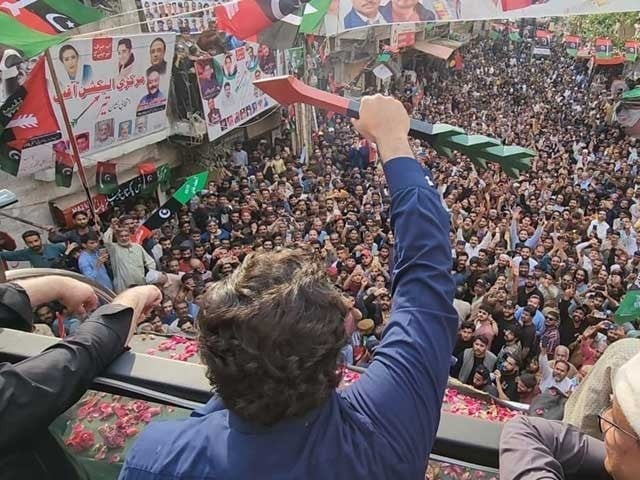- Joined
- Jan 25, 2024
- Messages
- 111,139
- Likes
- 867
- Nation

- Residence

Pakistan’s general elections are scheduled for February 8, and for some it will be their first time casting a vote. For our readers, Business Recorder is breaking down the steps in order to make the exercise easier and simpler.
Here are a few things to consider before casting your ballot.

To prevent confusion on election day, it is wise to find out where you will cast your ballot in advance.
The Election Commission of Pakistan (ECP) has introduced a text message service that enables you to find out your constituency in order to address this.
Text your National Identity Card (NIC) number to 8300, making sure to include all digits without spaces or dashes.
You will receive the block code, serial number, and name of the electoral region once you have mailed in your CNIC.
Read the complete details here

Bringing your CNIC to the polling place is essential. Even if you bring photocopies and other documents, you will not be allowed inside.

Please reconsider if you were about to snap a picture or a selfie while voting. Bringing a cellphone is not permitted at all. Leave your phone at home or in a secure location.
After leaving the polling place, however, you can snap a photo of your thumb that has the specific ink applied to it.

Voting will take place from 8:00 am to 6:00pm. To avoid a long queue, try to arrive early on during the day.

Wait for your time in the queue, and the presiding officer will verify that your name and electoral number are listed.
After calling it out, the officer will mark it off the list to let you know that you have been given two ballots.
If you forget to look for the presiding officer’s signature and stamp on the back of both papers, your vote won’t be accepted.

There will be two ballots provided to you. The white voting paper is for the provincial parliament; the green ballot paper is for the national assembly.

After that, the presiding officer will imprint your thumb impression on the electoral rolls using a unique, non-erasable ink. This will be done to demonstrate that you’ve used your right to vote.
This portion of the ballot paper will be retained by the presiding officers for their records.

Make sure the ballot papers have:

After that, you’ll be led to a polling place. Verify that no one else is present or trying to get you to cast a vote for a certain entity.
Make sure the ink is dry before properly folding the ballot papers once you have stamped both of them.
Proceed to the voting booths and insert the green ballot paper into the green-topped box and the white ballot paper into the white-topped box.
Here are a few things to consider before casting your ballot.

To prevent confusion on election day, it is wise to find out where you will cast your ballot in advance.
The Election Commission of Pakistan (ECP) has introduced a text message service that enables you to find out your constituency in order to address this.
Text your National Identity Card (NIC) number to 8300, making sure to include all digits without spaces or dashes.
You will receive the block code, serial number, and name of the electoral region once you have mailed in your CNIC.
Read the complete details here

Bringing your CNIC to the polling place is essential. Even if you bring photocopies and other documents, you will not be allowed inside.

Please reconsider if you were about to snap a picture or a selfie while voting. Bringing a cellphone is not permitted at all. Leave your phone at home or in a secure location.
After leaving the polling place, however, you can snap a photo of your thumb that has the specific ink applied to it.

Voting will take place from 8:00 am to 6:00pm. To avoid a long queue, try to arrive early on during the day.

Wait for your time in the queue, and the presiding officer will verify that your name and electoral number are listed.
After calling it out, the officer will mark it off the list to let you know that you have been given two ballots.
If you forget to look for the presiding officer’s signature and stamp on the back of both papers, your vote won’t be accepted.

There will be two ballots provided to you. The white voting paper is for the provincial parliament; the green ballot paper is for the national assembly.

After that, the presiding officer will imprint your thumb impression on the electoral rolls using a unique, non-erasable ink. This will be done to demonstrate that you’ve used your right to vote.
This portion of the ballot paper will be retained by the presiding officers for their records.

Make sure the ballot papers have:
- ECP’s watermark
- Official nine-matrix seal
- Not a paper or anything else attached to it
- Does not have stamps on more than one candidate’s election symbols

After that, you’ll be led to a polling place. Verify that no one else is present or trying to get you to cast a vote for a certain entity.
Make sure the ink is dry before properly folding the ballot papers once you have stamped both of them.
Proceed to the voting booths and insert the green ballot paper into the green-topped box and the white ballot paper into the white-topped box.


































